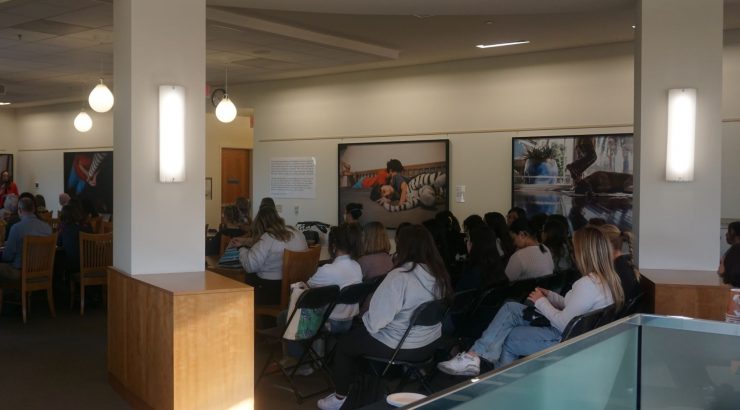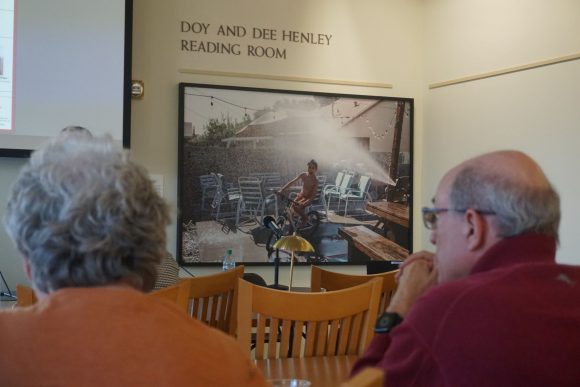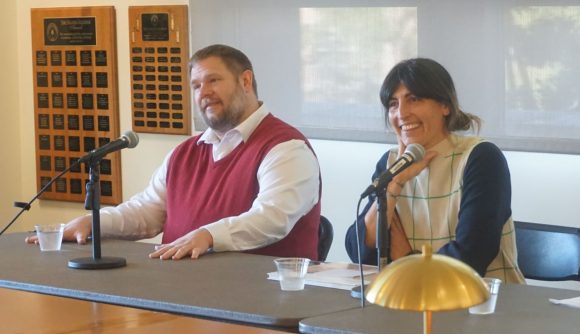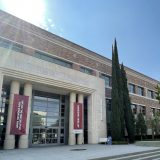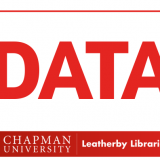Autism Acceptance Panel Discussion – Promoting the Creation of an Inclusive Environment Supporting Autistic Persons As They Unlock Their Gifts, Talents, and Strengths
March 18, 2024
On February 28, 2024, the Leatherby Libraries hosted the opening reception of the Acceptance photo exhibition curated by Chapman University lecturer Bernie Dickson. The profoundly moving exhibit offers a glimpse into the Dickson family’s journey through social isolation during the COVID-19 pandemic, highlighting its impact on her two autistic sons. Deprived of their usual support network, the family embraced empathy and deeper connections with each other to adapt to their changed circumstances. This adaptation process not only helped them find a new routine but also deepened their acceptance and understanding of autism’s role in their lives.
Motivated by the powerful messages of the exhibition, the Leatherby Libraries collaborated with the Thompson Policy Institute on Disability, the Attallah College of Educational Studies, the Agryros College of Business and Economics, the Wilkinson College of Arts, Humanities, and Social Sciences, and the Office of Diversity, Equity and Inclusion to host a panel discussion on autism acceptance. This conversation aimed to spark meaningful conversations about autism’s place in society, marking a first-of-its-kind event at the Leatherby Libraries.
The panel featured a lineup of distinguished speakers: Bernie Dickson, Stephen Hinkle, a Ph.D. student at Chapman and autism self-advocate, and Dr. Amy Jane Griffiths, an Associate Professor at Chapman University who co-authored Autism in the Workplace: Creating Positive Outcomes for Generation A. Dr. Griffith’s co-authors, Dr. Amy Hurley-Hanson and Dr. Cristina Giannantonio, professors in the Argyros College of Business and Management were also present at the event, with Dr. Meghan Cosier acting as the panel moderator.

Acceptance Panel from left to right: Stephen Hinkle, Bernie Dickson, Dr. Amy Jane Griffiths, Dr. Meghan Cosier
The panel engaged in an interdisciplinary discussion that examined strategies for enhancing societal support for individuals with disabilities. Hinkle shared anecdotes from childhood, highlighting his obstacles as an autistic person. He connected his experiences with those of other autistic persons to shed light on how it felt not to be encouraged to explore passions. The panel examined why autistic people have been discouraged from pursuing professional passions and instead given low expectations about their ability to integrate into the workforce in a fulfilling capacity. The discussion emphasized the critical need to empower autistic individuals to discover and pursue their passions to create a more inclusive and equitable environment for everyone.
The panel tackled the restrictive nature of academic curriculum’s expectations for autistic students that often begin a lifelong process of limiting their ability to explore personal interests. Hinkle noted that his own experience of not being taught how to dance ultimately showed him the importance of advocacy, highlighting the broader issue of inadequate advocacy and support for autistic persons to have the opportunity to try something they are interested in. The panel concluded with a call to action, urging attendees to advocate for a shift towards recognizing and nurturing the unique identities and talents of autistic individuals, thereby enriching society as a whole.
The panel underscored the ongoing need to broaden our understanding and acceptance of autism from various perspectives. Dickson emphasized the need to allow autistic individuals to shape these conversations and encouraged continued advocacy for hearing autistic voices. It is essential to continue fostering these conversations with autistic persons to promote and contribute a deeper, more inclusive understanding of how to support their needs on our campus and worldwide.
Click here to watch the recording of this panel discussion on the Chapman University Digital Commons.
The Leatherby Libraries’ Diversity, Equity, and Inclusion efforts align with the Chapman University Strategic Plan for Diversity & Inclusion, fostering a diverse and inclusive campus climate.
